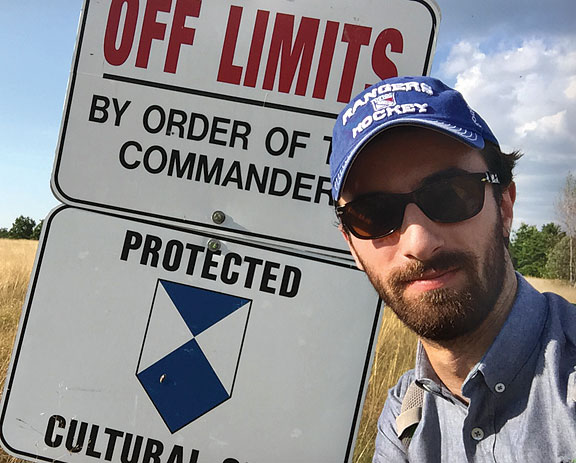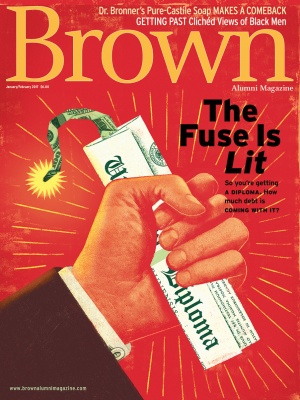Ever since an eighth grade history teacher introduced him to Mesopotamian art, David Elitzer ’17 knew he wanted to study archaeology and the Middle East. After spending most of high school absorbed in the Ancient Middle Eastern wing of the Metropolitan Museum of Art in New York City, he arrived at Brown planning to study archaeology.

From there, he got a job at the RISD museum studying heritage issues and the appropriate display of ancient objects, then working on three different field projects (in Israel, Turkey, and Sardinia), and interning with a civilian archaeologist at Fort Drum to help educate people in the defense community on how to protect the traditional agricultural infrastructure in North Africa during military operations.
For his work, Elitzer has earned a Marshall Scholarship, which will pay for two years of school in the United Kingdom. Each year, about forty students nationally receive a Marshall Scholarship, which was begun in 1953 to establish relationships between young Americans and Britain. Elitzer received the news just a day after his interview. “When they told me, ‘We want to congratulate you on being a 2017 Marshall Scholar,’ I told them I had to sit down on the ground.”
A Marshall also went to Evan Silver ’16, who was raised by a printmaking folk musician and an architect. Growing up, he’d always felt the need to create things, and Brown, he says, allowed him to do just that. He studied literary arts, served as a board member of the student-run theater company Production Workshop, and worked on fifteen different productions.

After receiving a Luce Scholarship and graduating last spring, Silver moved to Bali, Indonesia. Studying Balinese culture and art has been crucial to his grasp of history and tradition. He’s especially interested in the study of ancient texts and mythologies and in using them to get at the “unachievable goal of understanding the universal.” In the United States, theater education is mostly text-based, he says, but he’s found that in Indonesia and other Eastern societies the body is more essential to performance, and is an easier access point to some of the most fundamental questions about art.
Next year, Silver will be using the Marshall to study at the Royal Central School of Speech and Drama in London, where he hopes to find a balance between his Brown theater education and his work in Indonesia.
For his part, Elitzer plans to pursue two degrees—a master’s in International Public Policy at University College London and a master’s at Cambridge in Archaeological Heritage. The Marshall is one of the only scholarships that allow recipients to pursue two separate degrees. “Although the degrees are separate, I view my interests as one combined thing. A professor at Brown suggested I mix and match.”
When asked why he applied for the scholarship, Silver answered, “It’s a pretty unbeatable opportunity to have support from an organization that says ‘I believe in what you’re doing and I want you to keep doing that. We believe in you and you show promise.’ It’s encouraging.”




